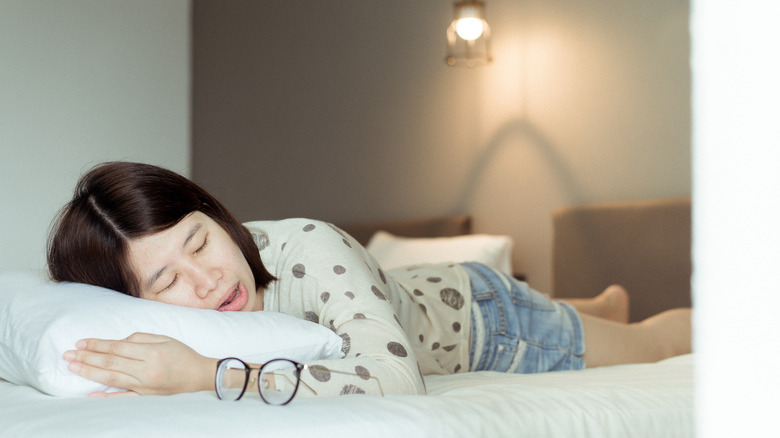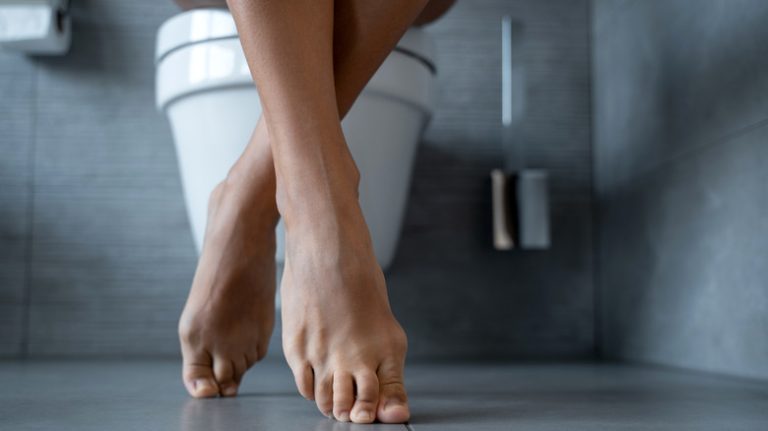You know that feeling after you wake up from a solid eight hours of sleep only to notice your pillow is soaked? It’s not the easiest thing to admit, but drooling in our sleep happens often. According to Healthline, our swallowing reflexes relax while we slumber and allow an excess amount of saliva to accumulate in our mouths and seep onto our pillow cases. It’s mostly common during an infant’s first few years of life, though many of us continue to drool well into adulthood.
Oftentimes, we like to make light of drooling while we sleep. But it is actually considered a medical condition if it is happening way too often to make jokes over. “Excess saliva, also known as hypersalivation or sialorrhea, can be a result of excess production or decreased clearance of saliva,” said Dr. Paula Barry, physician at Penn Family and Internal Medicine Longwood, to Penn Medicine. Other than a relaxed swallowing reflex, there are other reasons that could explain drooling while you sleep.
Drooling could be a symptom of another condition

Drooling after you have counted sheep could be a side effect of a larger medical condition. As stated by Healthline, gastrointestinal reflex disorder (GERD), swallowing disorders known as dysphagia, and sleep apnea are all medical conditions that have shown an increased amount of nighttime drooling. Verywell Health also points out that you could be drooling more while you are sick and have clogged sinuses, or are dealing with allergies.
If you’re wanting to wake up with a dry pillow case, the best way to do this is to find out what is causing you to drool in the first place. According to Medical News Today, drooling may disappear after you have treated any allergies or sinus infection. It may also be as simple as changing your sleep position. Flipping over and sleeping on your back may be all that is needed. If your drool is the side effect of a neurological disorder, then your doctor may prescribe the medication scopolamine, or recommend Botox to help decrease the amount of and how often you drool.
Like many others, our first instinct is to want to make light of this slightly embarrassing act many of us have experience with. But if you are really bothered by how often you drool, or are concerned it may be linked to an underlying disorder, then make an appointment with your doctor to discuss your concerns.


